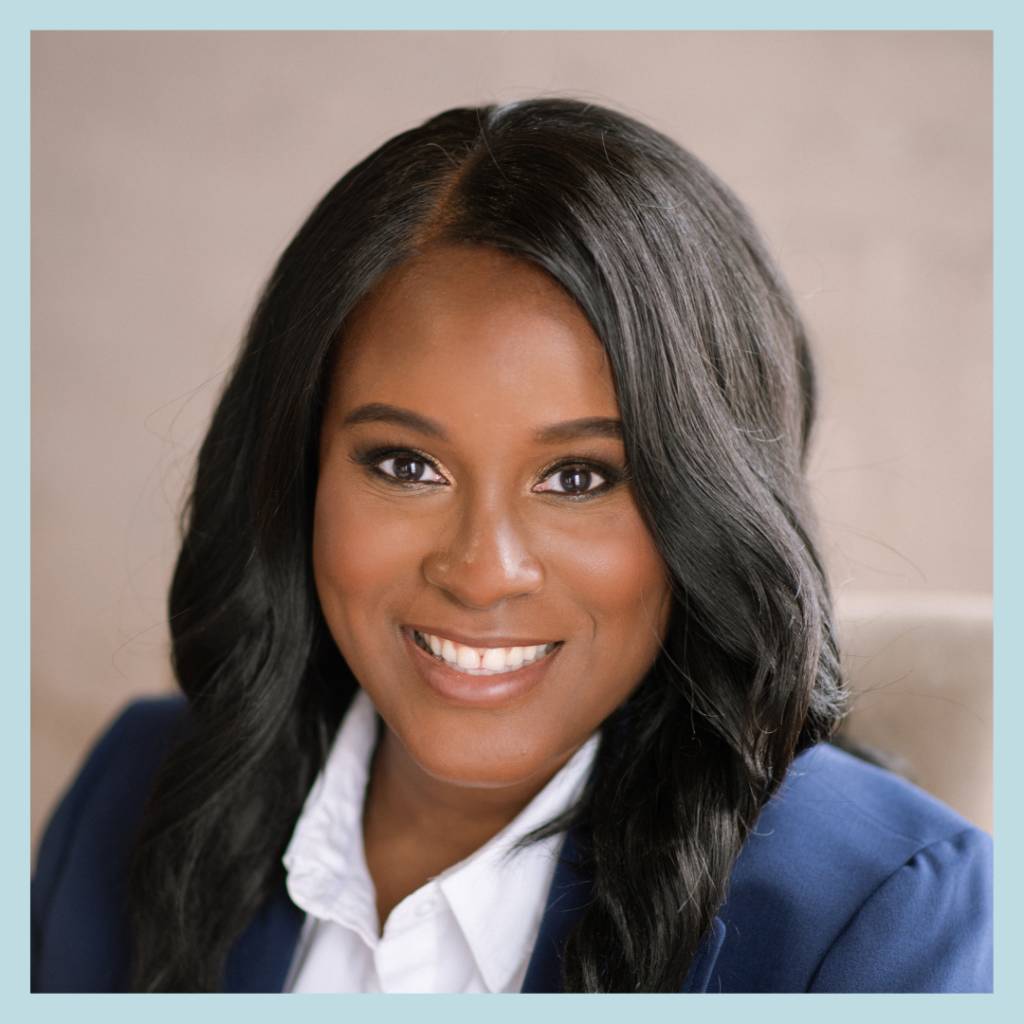#UMNMCH student Andrea Lawson (she/her) describes her deployment with the Minnesota Department of Health (MDH) in partnership with the Minnesota Breastfeeding Coalition. The MN Breastfeeding Coalition is a group whose purpose is to create equitable environments where breastfeeding is valued and supported to achieve natural infant feeding in all Minnesota communities. During her deployment, she worked with Somali and African-American birthing parents to understand how cultural beliefs influence breastfeeding practices. By analyzing qualitative data, Andrea hopes that this information can be used to promote equity in breastfeeding education.
What brought you to the UMN MCH Program?
As an MCH candidate, my ultimate goal is to bridge gaps in health outcomes related to social determinants of health and health disparities affecting women, children, and birthing people from marginalized communities. I am deeply committed to conducting research that supports culturally tailored approaches to enhance healthcare outcomes. Additionally, I am passionate about early childhood special education and supporting children with special healthcare needs by ensuring access to early intervention strategies for the most optimal developmental outcomes.
What were the goals of your deployment? What did you work on or address?
In partnership with the Minnesota Department of Health, the Minnesota Breastfeeding Coalition Perinatal Experiences Study sought to create a meaningful impact on breastfeeding experiences for Somali and African-American birthing parents. We started with an overarching research question: In what ways do cultural beliefs, community norms, and personal attitudes impact the initiation, duration, and perceived importance of breastfeeding among Somali and African-American birthing parents? Given the increasing diversity within Minnesota’s underserved populations, the study aimed to promote optimal feeding practices by identifying barriers and facilitators, building community capacity, developing culturally sensitive education, and addressing obstacles to improve overall health outcomes.
How will (or do you hope) your deployment efforts/findings will be used in the future?
With Minnesota’s rich diversity, disparities in healthcare—especially concerning birthing experiences—are an area of concern. My hope is that this study will shed light on the systemic barriers faced by these communities, including perceived bias within healthcare and limited access to necessary resources. By identifying key facilitators and barriers, the findings could ultimately help improve breastfeeding rates and reduce reliance on unnecessary formula use.
What was accomplished or produced during the course of your deployment?
During my deployment, our research team successfully gathered survey responses from focus groups of both Somali and African-American birthing parents. A focus group was created to gather sentiments around donor milk and breastfeeding experiences for both Somali and African-American Women. All participants were surveyed and their responses were compiled and coded in NVivo. In November 2023, during the coding process, a Fatwa (religious clarification) regarding donor milk was issued by the Minnesota Islamic Council, in collaboration with community organizations, local neonatologists, and members of the MBC. The Fatwa encouraged the use of pasteurized human donor milk for babies in the event a mother’s milk is not available given the stigma around donor milk.
What was the best thing about your deployment?
The best part of my deployment was seeing the prioritization of breastfeeding disparities within these communities. It offered a valuable opportunity to educate others on cultural practices and beliefs regarding donor milk, thereby addressing the unique breastfeeding needs of these groups to support their overall health and well-being. Children’s MN and MHealth Fairview will now provide educational materials and the Fatwa to patients in an effort to help educate and make an informed decision when it comes to electing to use donor milk. In addition, clinical staff including staff from the MN Breastfeeding coalition are now equipped to train staff with such cultural sensitivities when caring for Somali and African-American populations.
BIO
Andrea Lawson is a part-time MCH student, pre-doctoral MNLEND fellow, and dedicated member of the MN Department of Health’s Maternal and Child Health Task Force, the Minnesota African-American Health State Advisory Council, and the Sisters in Public Health, where she serves as the Twin Cities chapter chair. She earned her Bachelor’s in African-American & African Studies with a Spanish minor from the University of Minnesota-Twin Cities and holds a Master’s in Health Services Administration from Central Michigan University.
With a focus on neurodevelopmental disabilities, maternal and child health, health equity, early childhood interventions, and trauma-informed care, Andrea collaborates with the Learn the Signs, Act Early program and is currently helping redesign Minnesota’s Follow Along Program to support optimal health outcomes for all children. Her work centers on expanding early intervention strategies and dismantling systemic barriers for neurodivergent families in marginalized communities.
In her free time, Andrea enjoys traveling and spending quality time with loved ones. After graduation, she plans to continue her advocacy for neurodiverse children and families and establish a maternal safety program.
–Read Student Spotlight archives
Interested in learning more about getting a degree in MCH? Visit our MCH Program page for more information.
#UMNMCH #UMNproud #UMNdriven
